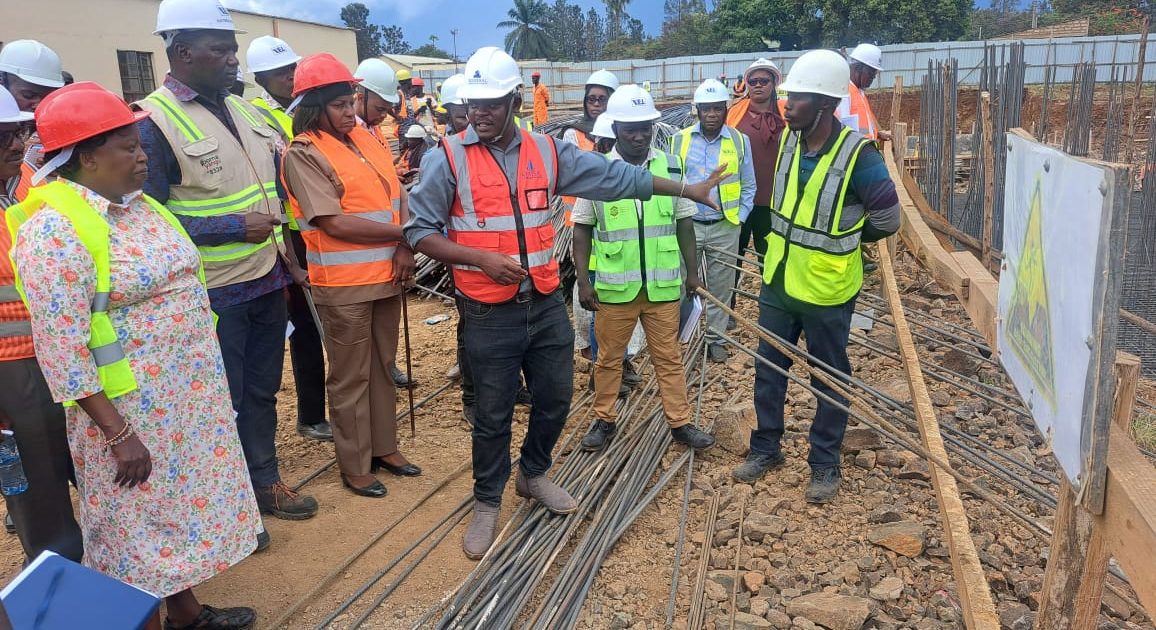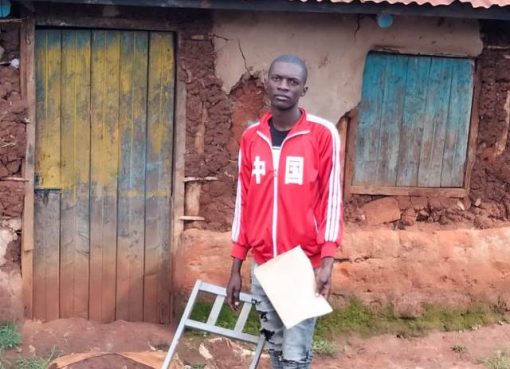The government has spent Sh5.7 billion on the ongoing construction of affordable housing projects in Kisumu County.
This Kenya Kwanza government flagship project spearheaded by President Dr. William Ruto is building 1880 units through the Affordable Housing Development Programme in Lumumba estate Kisumu city that was inspected Tuesday by a high-powered team from the Prime Cabinet Secretary’s office.
The team, led by the Principal Administrative Secretary Juliana Yiapan, was on a mission to establish the status of 51 national government funded projects in Western Kenya region most of which were launched by the Head of State.
The team, which was accompanied by Nyanza Regional Commissioner Flora Mworoa, was informed by the contractor Jared Buoga that the project commenced later than was anticipated and was now set for completion by January 2026.
So far, the excavation for the foundation of 11 blocks has been competed with 4 other blocks; block A3, A4, A5 and C in progress. Blocks B1 and B7 backfilling was underway, block B2 casting of foundations columns as well as casting of raft among other steel reinforcements was ongoing.
In an exclusive interview with KNA at the site, Yiapan said that her team was on a mission to establish whether the 51 projects were being implemented after it emerged that some projects couldn’t be easily located and so may have stalled.
Resident Eng. Clement Onyango of KEMSAL Consultants stated in a report that the government has so far paid Sh575.2 million as at July 2024 and the construction works was progressing well.
He informed the team that a further Sh215.6 million was being processed to ensure the project does not stall for whatever reasons.
The Affordable Housing project has indeed raised the national government profile with members of the public who milled around the site telling KNA that soon rather than later, shortage of housing would be a thing of the past in the lakeside city.
Yiapan and her team had earlier in the morning paid a courtesy call on the Nyanza Regional Commissioner before proceeding to Siaya County for a similar exercise.
They later travelled back to Kisumu International Airport tower, the cotton growing project in Chiga, Kisumu East and finally to Kisumu National Polytechnic textile industry projected to cost up to Sh3.9 billion by completion.
At Chiga cotton growing project, Kisumu County government officials confirmed having received 1 Metric tons of BT- cotton and traditional cotton seeds being piloted by selected farmers to ascertain their reliability before upscaling to all farmers in the county.
However, the team was informed that most of the cotton seeds were destroyed by flooding and that was followed by drought. This meant that most farmers had to replant twice or thrice culminating in huge loses. The farmers have subsequently appealed to the government to avail more cotton seeds.
Stakeholders in the Agricultural sector identified Lake Basin Development Authority (LBDA) and Kenya Prisons (Kodiaga and Kibos) as having large tracks of land required for effective multiplication of BT- cotton and the traditional cotton seeds for further distribution to farmers in the region
At Kisumu Polytechnic the team was told that the government through World Bank funding has built a modern textile industry complete with state of the art machinery and laboratories for mass production as well as training students drawn from East, Southern and Central Africa.
So far, the government has disbursed Sh394 million already spent on the project and is only awaiting delivery of a few other machines to start running after being commissioned in the next few months, according to the Director in charge of the project, Thomas Nyang’oro.
Nyangóro said that the 5year project has lagged behind due to unpredictable climate changes among other challenges adding that it would facilitate the region’s staff skills upgrading on TVET programmes.
He said Tanzania and Ethiopia are among the countries set to improve their workforce as their students will use the state of the art textile machines, studios, textile libraries as the multi-billion project stands out among other national government flagship projects scattered across the country.
”We boast of Sh230 million worth of equipment, computer machines for weaving and processing some of which have been delivered while others are still on the way,” he told the team.
The textile project has the capacity to host 600 students per session for those going for hands-on practicals from the polytechnic and other institutions in the region.
By Joseph Ouma




